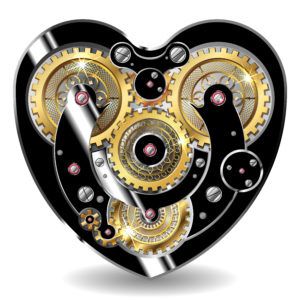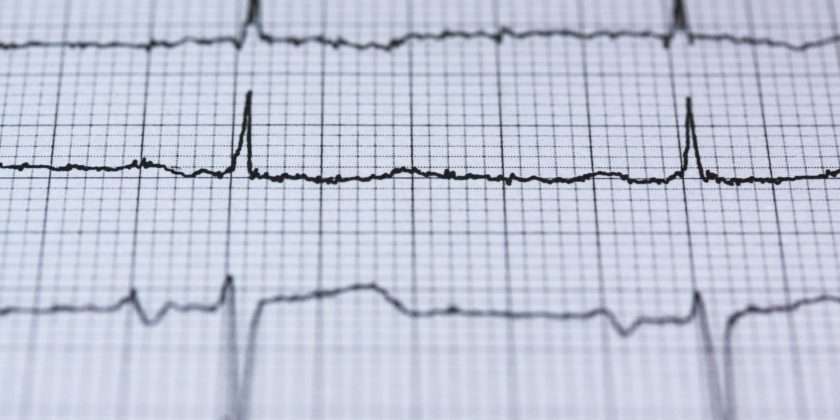The prevalence of Heart Failure (HF) is rising with the aging of the population and is estimated at 6.5 million adults. The major risk factors for HF are CHD, hypertension, and diabetes. Coronary heart disease (CHD) (43.8%) is the leading cause of deaths attributable to CV disease (CVD) in the US, followed by stroke (16.8%), high BP (9.4%), heart failure (HF) (9.0%), and other CVDs (17.9%). By 2035, >130 million adults in the US population (45.1%) are projected to have some form of CVD, and total costs of CVD are expected to reach $1.1 trillion in 20351 . Jay Harold wrote this post, “, What’s Heart Failure? Causes & 4 Med Treatments” to give you more information about this deadly disease.
Heart failure2 is a condition in which the heart can’t pump enough blood to meet the body’s needs. Heart failure does not mean that your heart has stopped or is about to stop working. It means that your heart is not able to pump blood the way it should. It can affect one or both sides of the heart.
The weakening of the heart’s pumping ability causes
- Blood and fluid to back up into the lungs
- The buildup of fluid in the feet, ankles, and legs – called edema
- Tiredness and shortness of breath
Common causes of heart failure are coronary artery disease3 , high blood pressure, and diabetes. It is more common in people who are 65 years old or older, African Americans, people who are overweight, and people who have had a heart attack. Men have a higher rate of heart failure than women.
Your doctor will diagnose heart failure by doing a physical exam and heart tests. Treatment includes treating the underlying cause of your heart failure, medicines, and heart transplantation4 if other treatments fail.
Heart failure – medicines5

Most people who have heart failure need to take medicines. Some of these medicines are used to treat your symptoms. Others may help prevent your heart failure from becoming worse and let you live longer according to MedlinePlus2 .
How to Take Your Medicines
You will need to take most of your heart failure medicines every day. Some medicines are taken once a day. Others need to be taken 2 or more times daily. It is very important that you take your medicines at the right time and in the way your doctor has told you.
Never stop taking your heart medicines without talking to your healthcare provider first. This is also true for other medicines you take, such as drugs for diabetes, high blood pressure, and other serious conditions.
Your provider may also tell you to take certain medicines or change your doses when your symptoms get worse. DO NOT change your medicines or doses without talking to a provider.
Always tell your provider before you take any new medicines. This includes over-the-counter medicines such as ibuprofen (Advil, Motrin) and naproxen (Aleve, Naprosyn), as well as drugs such as Sildenafil (Viagra), vardenafil (Levitra), and tadalafil (Cialis).
Also, tell your provider before you take any type of herb or supplement.
ACE Inhibitors and ARBs
ACE inhibitors6 (angiotensin-converting enzyme inhibitors) and ARBs7 (angiotensin II receptor blockers) work by opening blood vessels and lowering blood pressure. These medicines can:
- Reduce the work your heart has to do
- Help your heart muscle pump better
- Keep your heart failure from getting worse
Common side effects of these drugs include:

- A dry cough
- Lightheadedness
- Fatigue
- Upset stomach
- Edema
- A headache
- Diarrhea
When you take these medicines, you will need to have blood tests to check how well your kidneys are working and to measure your potassium levels.
Most of the time, your provider will prescribe either an ACE inhibitor or an ARB. A new drug class called angiotensin receptor-neprilysin inhibitors (ARNI’s) combines an ARB drug with a new type of drug. ARNI’s may be used to treat heart failure. Entresto (Sacubitril/Valsartan) is an angiotensin receptor-neprilysin inhibitor.
Beta Blockers
Beta blockers slow your heart rate and decrease the strength with which your heart muscle contracts in the short term. Long-term beta blockers help keep your heart failure from becoming worse. Over time they may also help strengthen your heart.
Common beta blockers used for heart failure include carvedilol (Coreg), bisoprolol (Zebeta), and metoprolol (Toprol).
DO NOT abruptly stop taking these drugs. This can increase the risk of angina and even a heart attack. Other side effects include lightheadedness, depression, fatigue, and memory loss.
Water Pills or Diuretics
Diuretics help your body get rid of extra fluid. Some types of diuretics may also help in other ways. These drugs are often called “water pills.” There are many brands of diuretics. Some are taken once a day. Others are taken 2 times a day. The most common types are:

- Thiazides. Chlorothiazide (Diuril), chlorthalidone (Hygroton), indapamide (Lozol), hydrochlorothiazide (Esidrix, HydroDiuril), and metolazone (Mykrox, Zaroxolyn)
- Loop diuretics. Bumetanide (Bumex), furosemide (Lasix), and torasemide (Demadex)
- Potassium-sparing agents. Amiloride (Midamor), spironolactone (Aldactone), and triamterene (Dyrenium)
When you take these medicines, you will need regular blood tests to check how well your kidneys are working and measure your potassium levels.
Other Drugs for Heart Failure
Many people with heart disease take either aspirin or clopidogrel8 (Plavix). These drugs help prevent blood clots from forming in your arteries. This can lower your risk of a stroke or heart attack.
Coumadin9 (Warfarin) is recommended for patients with heart failure who have a higher risk for blood clots. You will need to have extra blood tests to make sure your dose is correct. You may also need to make changes to your diet.
Drugs used less commonly for heart failure include:
- Digoxin to help increase the heart’s pumping strength and slow the heart rate.
- Hydralazine and nitrates to open up arteries and help the heart muscle pump better. These drugs are mainly used by patients who are unable to tolerate ACE inhibitors and angiotensin receptor blockers.
- Calcium channel blockers to control blood pressure or angina (chest pain) from coronary artery disease (CAD).
Statins10 and other cholesterol-lowering drugs are used when needed.
Antiarrhythmic medicines are sometimes used by heart failure patients who have abnormal heart rhythms. One such drug is amiodarone.
1 of every 7.4 people in the US will die of sudden cardiac death!
Sudden cardiac death appears among the multiple causes of death on 13.5% of death certificates, which suggests that 1 of every 7.4 people in the US will die of sudden cardiac death. Because some survive sudden cardiac arrest, the lifetime risk of cardiac arrest is even higher.
Jay Harold hopes that you enjoyed this post, “What’s Heart Failure? Causes & 4 Med Treatments.” Please share it with others. Jay Harold has put together a Resource page that you may find useful when trying to improve your health and wealth. Please take this advice from Muhammad Ali and give back to others. “Service to others is the rent you pay for your room here on earth.”
Bibliography
- https://www.acc.org/latest-in-cardiology/ten-points-to-remember/2018/02/09/11/59/heart-disease-and-stroke-statistics-2018-update
- https://medlineplus.gov/heartfailure.html
- https://medlineplus.gov/coronaryarterydisease.html
- https://medlineplus.gov/hearttransplantation.html
- https://medlineplus.gov/ency/patientinstructions/000364.htm
- https://medlineplus.gov/ency/patientinstructions/000087.htm
- https://www.mayoclinic.org/diseases-conditions/high-blood-pressure/in-depth/angiotensin-II-receptor-blockers/ART-20045009?p=1
- https://medlineplus.gov/ency/patientinstructions/000100.htm
- https://medlineplus.gov/ency/patientinstructions/000292.htm
- https://medlineplus.gov/statins.html




